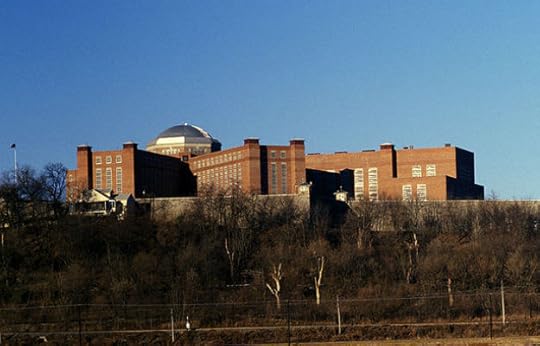CGSC prof: PME not as bad as you feared -- but still not as valued as you may wish

By John Kuehn
Best Defense guest respondent
Tom asked me to write this as an "insider's view" of someone
who has taught students (and been a student) in the professional military
education (PME) system of the United States since 1996. Since then, I have spent 12 years teaching.
There is much discussion these days that PME is a mess, in
part because of the post-9/11 wars, and in part because of more deep seated
institutional problems. Tom,
Bob
Scales, and others
have directed
the attention of the public (and some military leaders) to the system in place
today. As a professor of history at the
Army's Command and General Staff College
(CGSC) in Fort Leavenworth, Kansas, my informed take is that PME is not
as bad as some people think, especially in regards to its faculty. On the other hand, it is not as valued by
policy makers, either those in uniform or civilians, as
one would wish -- and it is especially denigrated by those folks in the Pentagon who work for
the Office of the Secretary of Defense (OSD) and the Joint Staff, or in joint
lingo, the J-staff.
Let me start with the bad news first. Former Congressman Ike Skelton, the patron saint and founder
of the modern PME system -- as it was reformed and institutionalized in the
Goldwater-Nichols Act -- must be appalled at how his vision for PME
is being undermined.
The real problem facing us has to do with revisions to the Officer
Professional Military Education Programs instruction and policy (I'm referring here to the OPMEP, CJCS 1800 series. I understand the Joint
Staff has some kooky notion about changing the 4-1 student to faculty ration to
5-1 in the OPMEP. 4-1 right now works
out to about 15 students to one instructor in the classroom because of all the "non-teaching
or barely teaching" staff that get counted as faculty or partial faculty.
This ain't right. The move toward 5-1
must be killed -- it goes in the other direction from the best graduate education
practices for resident education. Our
problems, no matter what the quality of the faculty, will increase
substantially. Additionally, the J-staff
continues prevaricate about assigning key JDAL billets to joint faculty at the
PME schools, to include the active duty officers of other services -- for example
navy officers assigned as faculty at CGSC. Joint education will never be properly valued if a joint tour in a PME
billet is not valuable enough to be coded that way.
It has been stated that, "The [PME] faculties are too
often weak and superficial." The good news is that this is very far from the truth when it comes to teaching faculty (faculty whose primary
job involves classroom instruction). I can speak directly to the issue of the
faculty at CGSC and SAMS, which is as strong as I have seen it in my sixteen
years of association with CGSC. One problem is an out of control curriculum
that the faculty, oddly, have little control over their own delivery and content. It is a large faculty,
so that does mean that the quality varies, but CGSC's history department, for
example, is probably the most talented military history department in the PME
Diaspora (despite including me), and maybe even in the world. I know Naval War
College's faculty less well (although I lecture on occasion for their Fleet
Seminar Program). Naval War College, I think we can agree, has a first rate
faculty, despite the fact that the Navy seems to value PME
the least. This is a fascinating paradox.
If I were king, CGSC would
go back to its pre-9/11 days "legacy structure" of one term of required
primarily Army-focused, in-class content for a core course and resume its
lengthier two elective terms model for the last five months of
instruction. Overall, for the entire PME
system I would also create a tenure track for all Ph.D. faculty. For active
duty faculty I would institute competitive selection with the heads of the
various colleges, with the Commandant at Fort Leavenworth having the "right of
refusal" for sister service faculty who were not of the best quality.
Records would be screened before nominations were made. Until we value the
faculty at these institutions, how can we possibly value their product? Resident course attendance would
be a universally competitive process so that we avoid what I like to call "the no major
left behind" syndrome. But resident
attendance should never be a year off, "a sabbatical from a grateful nation," as
a colleague of mine terms it. It should be rigorous and those who attend must
be professional in understanding this is not a gift, but an opportunity for
them to better serve their country by developing their intellect.
John T. Kuehn has
taught military history at CGSC since 2003 and retired from the Navy as a commander
in 2004. He earned his Ph.D. in history
from Kansas State University in 2007. He
graduated with distinction from Naval Postgraduate School in 1988. He won the Society of Military History
Moncado Prize in 2010 and is the author of
Agents
of Innovation
(2008),
Eyewitness
Pacific Theater
(with D.M. Giangreco,
2008), and numerous articles and editorials.
Thomas E. Ricks's Blog
- Thomas E. Ricks's profile
- 436 followers



